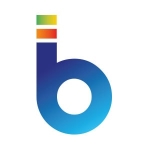What is our primary use case?
Primary use case, we use it for slicing and dicing service reporting. Our business is using Oracle BI to deliver business, marketing, and financial reports. Technology mainly does the modeling, and the business is creating the reports. We don't have any problems with the enterprise reporting.
It performs very well, because we are using Oracle Exadata. Oracle BI accesses Oracle Exadata, and it performs very well since Oracle Exadata has great performance.
How has it helped my organization?
We have been using the Oracle stack for a long time. So, it was a natural choice to use Oracle BI.
What is most valuable?
The performance can issue queries to work in the Oracle database in Oracle's native language. There are a lot of visualizations which suit our business.
It shares quite a lot of features which suit us. For example, we have scheduled reports delivered automatically to our business users using enterprise features.
It is easy to create a report quickly. It does not take much time to create an ad hoc report.
What needs improvement?
Now, we have more demands to load data somewhere quickly, not seeped into a model, like data warehouse model. We need to load it somewhere like a data lake and have a tool which can analyze the information very quickly without creating a model. So, our business has a need to have a sandbox, or something similar to it analyze unstructured data that does not fit into the data warehouse model, along with joining unstructured data with structured data from the data warehouse. However, I am not sure that the BI tool is the right tool to do this, it is more of a data discovery tool.
With Oracle BI, we need technology to create the model, then the business uses this model to create reports. If they wanted to analyze data quickly which is not in the data warehouse model, then we cannot use Oracle BI for it, or it's not so suitable.
For how long have I used the solution?
More than five years.
What do I think about the stability of the solution?
In the beginning, it was not so good. Now, with the version 11.7 and 12, we are satisfied and don't have any problems.
What do I think about the scalability of the solution?
In the beginning, it was not so good. Now, with the version 11.7 and 12, we are satisfied and don't have any problems.
How are customer service and technical support?
We used the technical support a few years ago. We were not satisfied with the support, because we could not obtain answers or solutions. The problems that we had were recognized as bugs, and they would say, "It will be fixed in the next releases," and it was fixed, but it took time. Basically, it was not a pleasant experience to work with My Oracle Support.
We had at our disposal updates, new features, and new releases, which was good. We downloaded and upgraded, but regarding the problems that we had, we were not satisfied. The last problem that we had was about four or five years ago, and we haven't had problems since.
Which solution did I use previously and why did I switch?
We previously didn't have a BI solution.
How was the initial setup?
We first used Oracle 10, then Oracle 11, and afterwards moving to 11.3 until we got to Oracle 12. The initial setup was not complex. Although, in the past, when we had to upgrade, we had to install another version, and move the reporting to it. Now, we can do an in-place update. So, it is not so complicated.
Which other solutions did I evaluate?
We had more than one quotation, then we chose the product based on a type of questionnaire with scoring. I think Oracle made the high score at that time (2010). It was between Oracle and Cognos at that time.
There are now tools like Tableau or Power BI that enable you to do BI analysis without any model in the background. You can just connect to the database, or any other unstructured data source and do whatever you like, probably with more fancy visualizations. Although I'm a technical person, these things are more important to our business people.
Oracle is an Enterprise BI tool. You have to do the modeling based on that model, then you can do whatever you like. However, it's not easy. It's not so flexible to do BI reporting directly from the data source without models. It is not that agile.
What other advice do I have?
It's a very good tool for plain Enterprise BI reporting and usual BI reporting. It's not a tool for data discovery. If you want to do old-fashioned plain BI reporting and have a large company where you want your business users to have the possibility to have reports delivered to them automatically, then Oracle BI is a good tool. If you want to be more agile and do more data discovery on unstructured data which is not well-known, then Oracle BI would not be the best choice.
Disclosure: My company does not have a business relationship with this vendor other than being a customer.
















